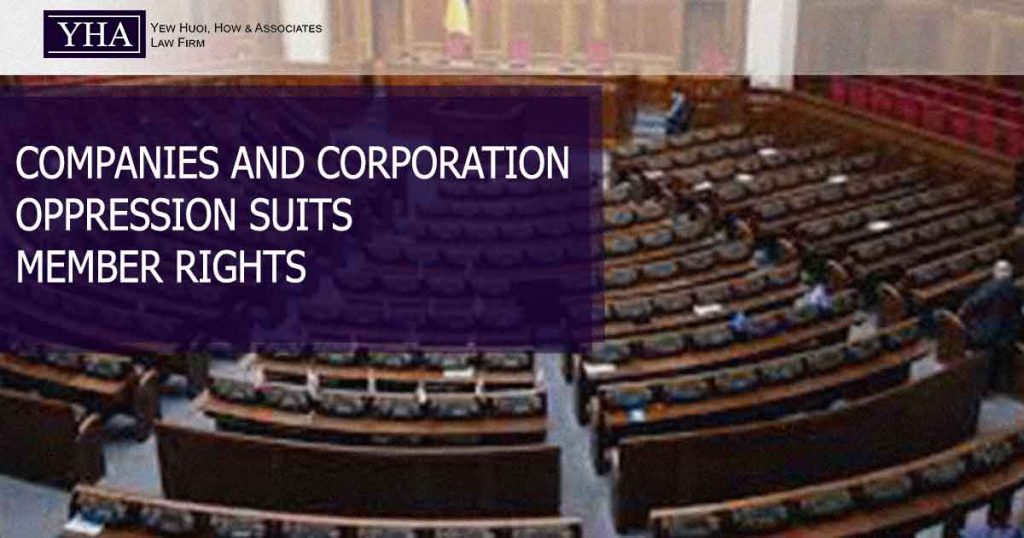In brief
- The majority rule concept states that a corporation is governed by its majority shareholders. This is an important part of corporate governance and democracy. Ordinarily, the shareholders decide on matters of leadership, direction, and management. As a result, when it comes to management concerns and shareholder conflicts, Malaysian courts are largely non-interventionist. When a company’s minority shareholders are oppressed, however, there is an exception to this general norm. In such cases, the courts have broad discretionary powers to issue decisions ranging from a buyout to a winding-up order, which they frequently do.
Q. What amounts to oppression? Am I being oppressed?
A. When the complainant can show that the majority was aware of the complainant’s rights and interests yet decided to ignore or act against them, this is considered oppressive conduct. Therefore, if you find yourself in this situation, you have the right to file for oppression in the court.
Q. In this case, who is most likely to be oppressed?
A. The majority of oppression lawsuits are filed by the company’s minority shareholders. A minority shareholder does not have enough voting power to exert control over a firm or substantial influence over its direction just because they own a minority stake in it. Internally, the majority principle governs the overall dynamics of a firm and its operations, with the majority’s viewpoint taking precedence over that of the minority.
Example: In the case of Safari Alliance Sdn Bhd v Tan Lee Chin & Ors [2022] 7 MLJ 27 by virtue of her position as Deputy Chairperson of the Board of Directors, the 1st Defendant declared herself as the meeting’s Chairperson. The Chairperson then announced the rejection of five proxy forms. On June 23, 2020, the Plaintiff filed a civil action under section 346 of the CA 2016, alleging oppression. Essentially, the oppression action aimed to overturn the Chairperson’s AGM decisions. The rejection of the 5 proxy forms and the withdrawal of the proposed resolutions on the Plaintiff’s proposed 6 additional directors, in particular. Second, to declare the AGM’s outcomes null and void, and to replace them with a conclusion that the Plaintiff claimed was the AGM’s unavoidable consequence. Nonetheless, the Court determined the legality of the chairperson’s conduct in this case, because the Chairperson noted that the rejected proxy forms were faulty because they did not mention any persons or the Chairperson as proxy. The shareholders who submitted the rejected proxy forms were not parties to the Plaintiff’s legal action, as previously stated. She had also sought legal advice and used her discretion as chairman to withdraw these planned resolutions.
When may a minority shareholder file an oppression lawsuit in court?
- The supremacy of the majority is a fundamental principle of company law and the general rule is that the minority will have to subscribe to the rule of the majority. Being consistently outvoted at meetings is not an oppressive conduct. Displacing the minority’s influence does not amount to a wrong, unless it is expressed in (i) a Shareholders’ Agreement; or (ii) otherwise provided for in the Articles or Constitution of the company. However, a wrong is committed when the majority rule turns into a rule oppressive of the minority members.
- In cases when the majority rule has been exploited, the Companies Act 2016 provides minority shareholders with the tools they need to fight back. In such a case, an unhappy shareholder will sue the firm in his or her personal role as a shareholder.
- The legal standard for oppression is whether the treatment of a shareholder is commercially unjust. Commercial unfairness is determined on a case-by-case basis, taking into account a range of variables such as the nature of the connection in question, the parties’ expectations, any existing agreements, and any common understanding among business members.

